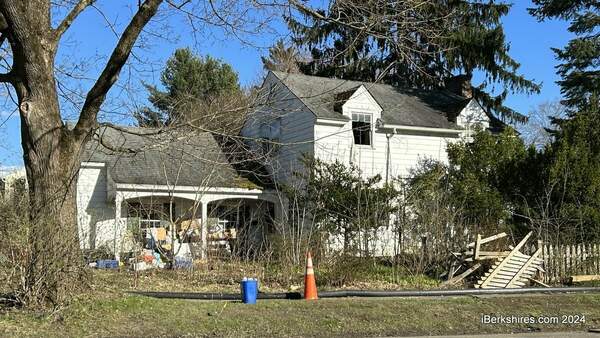Pittsfield Officials Keeping Eye On Medical Marijuana Regulations
 |
PITTSFIELD, Mass. — City officials have "guarded concerns" about medical marijuana as they wait for the state to craft regulations on dispensaries.
Voters passed the ballot question in November that will allow up to 35 dispensaries statewide, with at least one nonprofit in each county. The drug would be available only through prescription.
The law leave unanswered questions for health officials, planners and law enforcement as they wait for the Department of Public Heath's guidelines. But they are keeping an eye on the progress.
"We've been in touch with the Attorney General's office to see what advice they can give us. What we want to do is position ourselves so we can be ready to consider and put in place some zoning ordinances," Mayor Daniel Bianchi said. "Right now, I have a guarded concern but I've got to learn more about how it has impacted other states."
For the mayor, zoning seems to be the main concern. As long as the dispensaries are "managed properly" there shouldn't be any problems other than where they are located, he said.
That echoes concerns Gale LaBelle, who represents Becket in the Berkshire Regional Planning Commission, brought to that committee a month ago. Becket does not have zoning and she hoped for some advice from her fellow commissioners about restricting them. Some cities and towns in eastern mass have attempted to outright ban a dispensary.
DPH's regulations are not expected until May, which is after most of the county's smaller communities hold town meetings, so there could be a lag of almost a year before voters could approve zoning bylaws regulating dispensary locations.
The Massachusetts Municipal Association is petitioning DPH to delay the regulations to allow municipalities to craft local legislation.
Officials in the town of Adams said they had an individual inquire about opening a dispensaries but without the guidelines, the town could not provide them any information.
Meanwhile, Pittsfield Police Chief Michael Wynn is getting legal briefings almost daily about the status of the regulations. The law will create an added difficulty for the patrol officers, he said.
With the passage of a decriminalization bill just a few years ago, determining the exact charge, if any, is more complicated.
"It's going to come down to individual patrol officers making decisions in the field," Wynn said.
For example, when an officer is at a scene they will now have to first determine if the offender has a registration for marijuana. If so, the officer then has to weigh it to make sure it is not more than a 60-day supply. Exactly what a 60-day supply is, is still pending, Wynn said.
If the offender does not have a registration card, then the officer will need to measure quantity to determine if the charge is criminal or civil.
But the unanswered questions doesn't end there for law enforcement. Wynn said he is awaiting word on the databases of registered users. Currently, police do not know what the registration cards will look like and to which database will be used to verify.
"There is just no clear picture. I don't know what to expect," Wynn said, adding that there are no other communities to compare to because the states that have passed the law have different statutes.
He hopes DPH will implement a database through a portal the department already has access.
The officers will also need additional training. Wynn also said he has concerns about an increase of crimes against registered users and security of a dispensary.
"This legislation doesn't change the fact that this is a controlled substance," Wynn said. "That there will be more of it, that concerns me."
In the courtroom, the District Attorney's office said they have no comment on the legislation because they don't yet know how it would affect their role - or if at all.
Some of the county's health officials are equally uncertain about the law — declining comment because of the uncertainty of what they'll be asked to regulate.
The drug can be administered through food so Boards of Health will have a role if and when a dispensary comes to town.
For now, all officials can do is keep an eye on the state before they can even prepare to control it locally.















